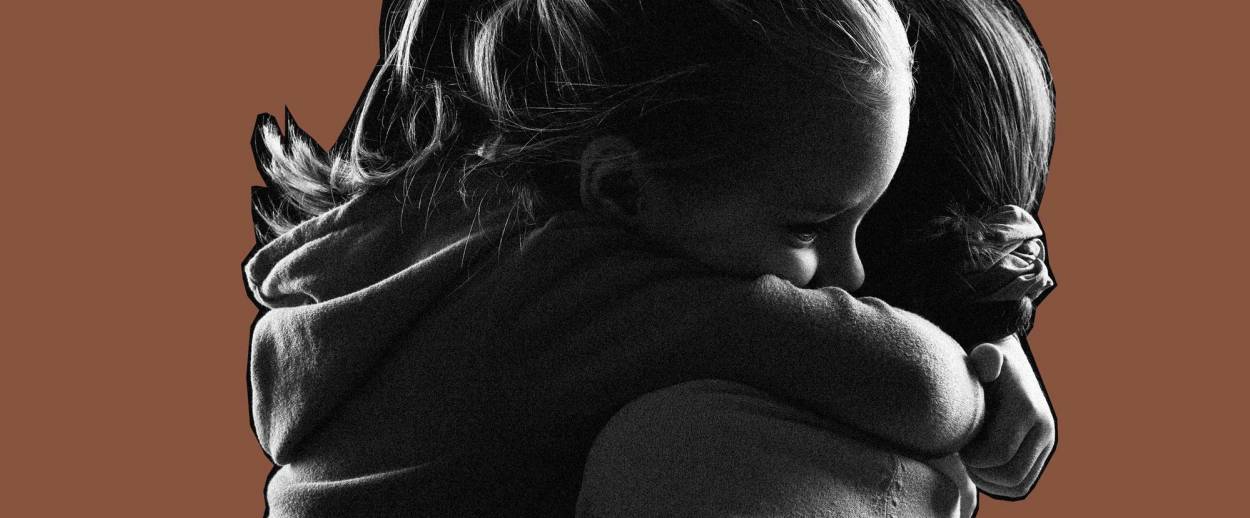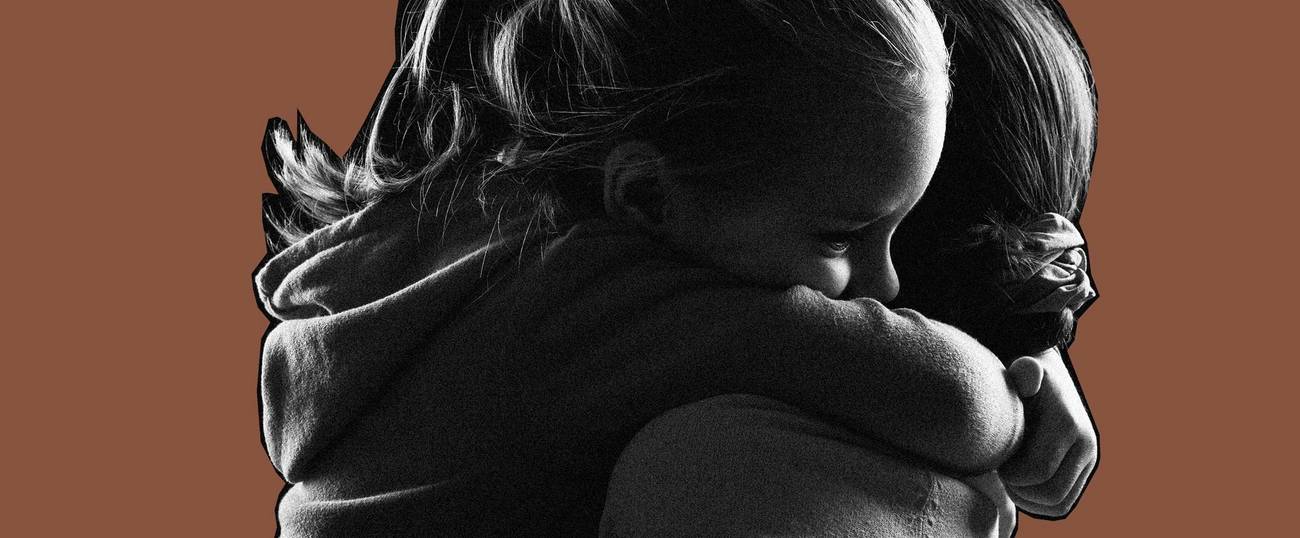Safe at Home
Jewish groups battle domestic violence




“You are the gatekeeper of your self-worth,” Naomi Ackerman tells audiences when performing Flowers Aren’t Enough, her one-woman play about domestic violence—created in Israel 20 years ago and since performed in English more than 2,000 times to audiences worldwide.
But Ackerman, founder and executive director of The Advot Project in Los Angeles and 2018 recipient of The Covenant Award, never anticipated the profound impact of her words.
A few years ago, when performing at a California college campus, Ackerman heard a harrowing story from a student who had previously attended Flowers Aren’t Enough at her Jewish high school: After joining a campus Jewish sorority, the young woman began dating a Jewish fraternity brother, but the relationship deteriorated; when he began hitting her, she remembered the words, “You are the gatekeeper of your self-worth.” As a result, she went to counseling and severed the abusive relationship. When this same guy began dating the woman’s sorority sister, she repeatedly warned her to stay away, but the friend didn’t listen—and the boyfriend killed her.
Since then, Ackerman, who uses theater arts as a teaching tool, ends each show with talkbacks tailored to each audience. Her overall goal is to create healthy relationships and change interactions by making ripples of change; hence the organization’s name Advot (Hebrew for “ripples”).
She also works in partnership with Rabbi Steven Carr Reuben, rabbi emeritus of Kehillat Israel in Palisades, California, who first addressed domestic abuse from the bimah 25 years ago. “When rabbis speak about domestic violence, it gives people permission to have open conversations about it. When they don’t speak about domestic abuse, it just reinforces its shanda nature,” he said.
Today, as founder of Home Shalom, Reuben is raising consciousness in the Jewish community about domestic violence—defined as a systematic, repetitive pattern of manipulative behavior used in order to gain and maintain power and control. The abuser uses psychological, financial, and physical force, including repetitive threats, intimidation, humiliation, coercion, and abandonment to control the victim.
Domestic abuse affects men and women in heterosexual and same-sex relationships. There is also a direct link between domestic violence and child abuse, with 1 in 15 children exposed to intimate partner violence each year and 90 percent of them eyewitnesses to this violence, according to the National Coalition Against Domestic Violence.
In Jewish families, domestic abuse occurs at about the same rate as in the general population (15-25 percent), among all socioeconomic levels and denominations including the unaffiliated, reports the Jewish Coalition Against Domestic Abuse.
“Domestic abuse is a symptom of vulnerability in our society,” said Reuben. “We need to wake up and recognize that Jews of every socioeconomic category are just as vulnerable as anyone else and be there for each other.”
Experts on domestic abuse shared numerous stories that illustrated the range of people affected in the Jewish community, from high-powered career women to young immigrant mothers. Their stories involved humiliation, name calling, financial control, social isolation, and emotional abuse about everything from home maintenance to religious observance.
Teenagers are often victims of abuse. Fifty-seven percent of teens know someone who has been physically, sexually, or verbally abusive in a dating relationship. Girls and young women between the ages of 16 and 24 experience the highest rate of intimate partner violence—nearly triple the national average, according to the National Council on Domestic Violence. Given those statistics, Home Shalom focuses on teaching teenagers about healthy relationships. This past year, more than 250 Los Angeles-area teens participated in Home Shalom’s Teen Accelerator Project. Funded by a two-year grant from the Jewish Federation of Greater Los Angeles, this project presents teen workshops at synagogues, Jewish schools, and youth groups. Plans are in the works for a theater program featuring teens telling stories about relationships; it will serve as a discussion trigger on how to listen and talk with each other than through mobile devices and social media.
In October, Home Shalom will launch the #KNOWYOURWORTH campaign: a series of programs, workshops, and performances of Flowers Aren’t Enough, including talkbacks at 10 institutions around LA. Plans also call for creating a youth leader handbook and teaching materials about healthy relationships.
This strategy of targeting young adults aligns with nationwide initiatives. NFTY, the Union of Reform Judaism youth movement, launched its Sexual Violence Prevention Campaign in April 2018 as a follow-up to its 2017 resolution on preventing sexual violence. “Change the Culture,” an ongoing program of Jewish Women International, focuses on sexual-assault prevention and dating abuse at U.S. college campuses. Among established local initiatives is JCADA’S AWARE program, which has engaged over 11,000 students, parents, and educators in the D.C. area since 2009.
Some new initiatives are aimed specifically at Orthodox young adults. Relationship Fundamentals is a workshop designed by the Shalom Task Force to provide young Orthodox women attending Jewish high schools in North America and seminary/gap-year programs in Israel with the knowledge to enter safe healthy relationships before entering the shidduch or matchmaker system. JWI’s Boy to Mentsch program is a Baltimore-area initiative that helps boys develop healthy masculinity, while GetSmart is its national pilot project that teaches Orthodox teens about healthy relationships and the Halachic prenuptial agreement as a deterrent to get abuse, i.e., refusing to issue a Jewish bill of divorce.
The goal is to prevent future generations from suffering. Emotional, verbal, and psychological abuse—including demeaning words and behavior—often precedes physical violence.
Victims of domestic abuse cross socioeconomic and educational levels. They may suffer in silence for years because they don’t recognize the symptoms, are in denial, fault themselves, or try to rescue the abuser. Meanwhile, the abuser slowly removes their freedom, self-respect, and self-worth, often blaming the victim.
“It is difficult for any victim of domestic violence to come forward. Nobody enters a relationship, stands under a chuppah or at the altar imagining this outcome, and it’s devastating,” said Shoshanna Frydman, executive director of the Shalom Task Force, which receives approximately 1,000 calls for help annually though its national referral hotline.
Social-service agencies now offer a variety of services and prevention programs, including those targeted at specific populations. Men are less likely to seek assistance than women and LGBTQ victims are more apt to reach out to agencies that understand the particular needs of the LGBTQ community, say experts.
“One role of social-service agencies and other entities trying to help victims is to become familiar with these factors and create culturally competent services,” said Frydman.
For instance, Shalom Bayit, a Jewish domestic abuse agency in the San Francisco Bay Area, recently introduced Svoboda (“freedom” in Russian), a new domestic outreach and counseling program for its local Russian-Jewish community.
“It is helpful for the victim if the victim doesn’t need to explain his or her culture to his or her therapist or attorney,” explained Cortney Fisher, executive director of the Jewish Coalition Against Domestic Violence. Jewish victims, particularly the more observant, often turn to Jewish agencies that understand Judaism because abusers often use religion as a means of control, e.g., forcing or not allowing victims to use a mikveh or adhere to kashrut.
SHALVA provides free domestic abuse counseling and support services to Jewish women across all denominations in the Metropolitan Chicago area. SHALVA has also implemented an Orthodox Rabbinic Task Force, a pilot program to train Orthodox rabbis about domestic abuse. ORTF is a consortium of 12 Orthodox rabbis from a broad spectrum of Chicago-area Orthodox communities who work in collaboration with SHALVA therapists to offer additional support to the Orthodox community in the Chicago area. The program familiarizes the rabbis with SHALVA’s work so they can feel comfortable about making referrals.
“Many Orthodox women will not come to SHALVA unless their rabbi says that it’s OK,” explained Carol Ruderman, the agency’s executive director. “Others will not go to their own rabbi because their husband may be a leader in their congregation so they can now go to any of the rabbis in this group.”
For children, families, and adults in the New York metropolitan area, Ohel Children’s Home and Family Services, headquartered in Brooklyn, offers counseling programs and services. The agency houses the only Orthodox shelter in the New York area, providing women and children exclusively with safe dwellings to heal from domestic abuse. Clients are referred to Ohel from such sources as rabbis, the Shalom Task Force, and the Met Council.
Nevertheless, Orthodox domestic violence victims—particularly in insular Hasidic communities—often hesitate to seek help and are afraid of approaching a secular court or involving the police, believing that it violates Jewish law. They often worry about not being believed, particularly if the abuser is a respected community member. Women cannot re-imagine life outside of a traditional family, and feel a tremendous sense of shanda or shame associated with the stigma of divorce and the fear of becoming an agunah and not receiving a get.
Nor is the Orthodox community alone. Jewish domestic abuse victims are often afraid to share to their stories out of fear that the Jewish community will not be supportive.
“We need to admit in the Jewish community that this can happen to anyone,” said Rabbi Edythe Mencher, director of the inclusion initiative of the Union of Reform Judaism. “It is wrong for us to say that it could never happen to us. The seed inside that comment is that it is your own fault and you are different. When we say it couldn’t happen to us, we are reassuring ourselves.”
***
Like this article? Sign up for our Daily Digest to get Tablet Magazine’s new content in your inbox each morning.
Paula Jacobs is a writer in the Boston area.